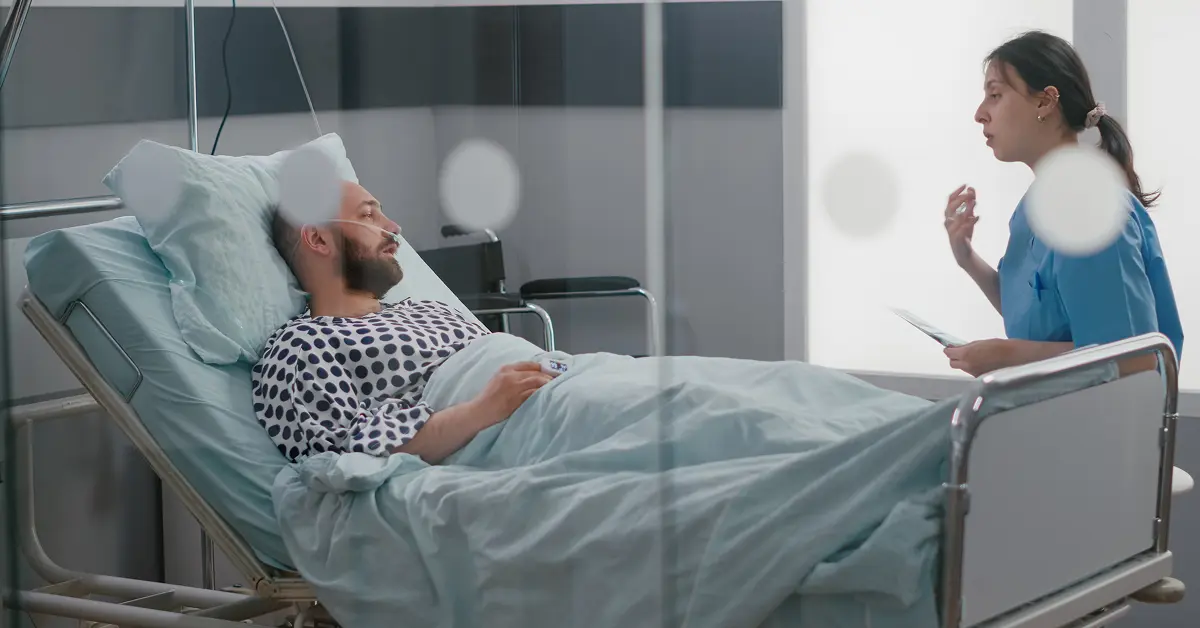Hospital stays are often just the first step in a patient’s recovery journey. While being discharged from the hospital feels like a sign of improvement, the period immediately after discharge is critical. Without proper care, patients face a high risk of returning to the hospital, a situation known as readmission. In India, where healthcare costs and hospital overcrowding are ongoing challenges, effective Hospital Discharge plays a vital role in ensuring better patient outcomes, reducing medical bills, and minimising unnecessary stress for both patients and their families.
Understanding Discharge Care
Discharge care refers to the process of preparing a patient to leave the hospital and transition to home or another care setting while ensuring they receive the necessary medical guidance, prescriptions, and support. It includes everything from explaining medications to arranging follow-up appointments, and in some cases, coordinating home nursing or physiotherapy.
The aim is simple — to make sure patients have everything they need to continue recovering safely and prevent any complications that could require another hospital visit.
The Link Between Poor Discharge Planning and Readmission
When discharge care is inadequate, the chances of readmission increase significantly. Common reasons for readmission include:
- Not understanding the medication schedule or dosage
- Missing follow-up appointments
- Poor wound care or infection management
- Lack of dietary or lifestyle guidance
- No arrangement for necessary home support
For example, a heart patient discharged without clear advice on diet, exercise, or warning signs might face complications that lead to another admission. These situations not only affect health but also burden families with additional costs and emotional stress.
Why Discharge Care Matters in India
In India, healthcare facilities are often busy, and hospital beds are in high demand. Avoiding preventable readmissions benefits everyone — the patient, the family, and the healthcare system. Proper discharge care:
- Improves Recovery – With the right instructions and support, patients heal faster and regain independence.
- Saves Money – Avoiding another hospital stay significantly reduces medical expenses.
- Reduces Stress – Families can care for loved ones confidently when they know what to do.
- Prevents Overcrowding – Fewer readmissions mean hospitals can focus on treating new patients who urgently need care.
Key Components of Effective Discharge Care
Clear Communication
Doctors and nurses must explain the patient’s condition, treatment, and aftercare in simple terms, preferably in the patient’s local language. Providing written instructions in addition to verbal explanations helps families follow the care plan accurately.
Medication Management
A large number of readmissions happen because patients stop taking their medicines or take them incorrectly. Discharge care should include:
- A clear list of medications with dosages and timing
- Instructions on how and when to refill prescriptions
- Guidance on possible side effects and what to do if they occur
Follow-up Appointments
Booking follow-up visits before the patient leaves the hospital ensures continuity of care. Hospitals can also send reminders via phone calls or SMS to make sure patients don’t miss these appointments.
Wound and Infection Care
Patients recovering from surgeries or injuries need proper wound care to prevent infections. Nurses should demonstrate dressing changes and provide the necessary supplies or contacts for home healthcare services.
Diet and Lifestyle Advice
Nutrition plays a big role in recovery. For example:
- Cardiac patients may need low-salt diets
- Diabetics should follow strict blood sugar control
- Orthopaedic patients may require calcium-rich foods for bone healing
Including simple recipes and food lists can make compliance easier.
Physical Therapy and Rehabilitation
For some conditions, physiotherapy is essential. Hospitals can refer patients to trusted physiotherapists or arrange in-home sessions, ensuring mobility and strength are regained gradually.
Emotional Support and Counselling
Recovery isn’t only physical — emotional wellbeing matters too. Counselling, either in person or online, can help patients deal with anxiety or depression that often follows serious illness or surgery.
Role of Home Healthcare in Post-Discharge Recovery
In recent years, home healthcare services in India have grown rapidly. Many families now opt for trained nurses, attendants, and therapists who visit the patient’s home. This trend offers several benefits:
- Reduces the need for frequent hospital visits
- Allows patients to recover in the comfort of home
- Offers personalised attention
- Minimises infection risks
Home healthcare can bridge the gap between hospital discharge and complete recovery, making it less likely that the patient will be readmitted.
Steps Families Can Take After Discharge
- Ask Questions Before Leaving the Hospital – Don’t hesitate to clarify doubts about medicines, diet, or warning signs.
- Keep a Recovery Journal – Track symptoms, medicine timings, and appointments.
- Arrange a Support System – Identify who will help with caregiving, whether it’s family members, neighbours, or hired professionals.
- Watch for Warning Signs – Fever, unusual pain, breathing trouble, or swelling should be reported immediately.
- Use Technology – Health apps and telemedicine platforms can help monitor vitals and connect with doctors quickly.
How Discharge Care Reduces Healthcare Costs
Avoiding readmission doesn’t just protect health — it saves money. The cost of even a short hospital stay in India can run into thousands or lakhs of rupees, depending on the hospital and treatment. Effective discharge care helps patients:
- Avoid expensive emergency visits
- Minimise the need for repeat tests
- Reduce the risk of long-term complications that require costly treatment
Government and Hospital Initiatives in India
Several hospitals now have dedicated discharge coordinators who guide patients and their families. Some government programs, like Ayushman Bharat, also encourage preventive care and follow-up to reduce hospital burden. Additionally, non-profit organisations and health startups are stepping in to offer low-cost home care and remote monitoring solutions.
Conclusion
Discharge care is not just a hospital formality — it’s a lifeline that connects the patient’s hospital treatment to their safe and complete recovery at home. In India’s fast-paced and resource-limited healthcare environment, avoiding preventable readmissions benefits everyone. By ensuring clear communication, proper medication management, follow-up care, and support at home, patients can recover faster, save money, and enjoy a better quality of life.
If you or your loved one is about to be discharged from the hospital, make sure to ask for a detailed care plan. A little preparation today can prevent a lot of trouble tomorrow.
Contents
- Understanding Discharge Care
- The Link Between Poor Discharge Planning and Readmission
- Why Discharge Care Matters in India
- Key Components of Effective Discharge Care
- Role of Home Healthcare in Post-Discharge Recovery
- Steps Families Can Take After Discharge
- How Discharge Care Reduces Healthcare Costs
- Government and Hospital Initiatives in India
- Conclusion
Our 24*7 services
Latest Posts
- What Is Respite Care and Why Is It Important
- Affordable home care for senior citizens in India
- Caring for Seniors with Dementia or Alzheimer's at Home
- Senior Caregiving A Guide for Every Family
- How to Write a Caregiver Resume That Gets You Hired
- How Care After Hospital Discharge Speeds Up Recovery at Home
- How to Get Home Health Care for Seniors Through Medicare
- What Does a Senior Citizen Caregiver Really Do at Home
- How to Care for Elderly Parents with Alzheimer’s or Dementia
- How to Get 24-Hour Care for Seniors at Home



